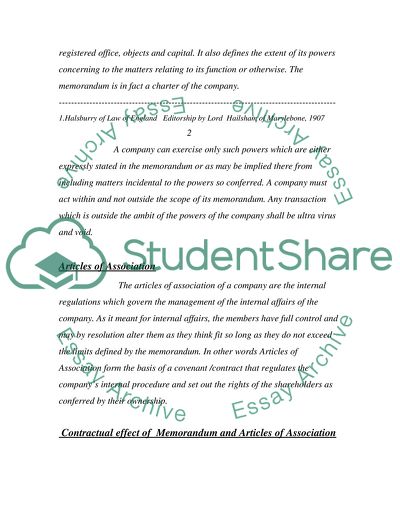Cite this document
(Contractual Effect of Memorandum and Articles of Association Coursework - 1, n.d.)
Contractual Effect of Memorandum and Articles of Association Coursework - 1. https://studentshare.org/law/1707784-company-law
Contractual Effect of Memorandum and Articles of Association Coursework - 1. https://studentshare.org/law/1707784-company-law
(Contractual Effect of Memorandum and Articles of Association Coursework - 1)
Contractual Effect of Memorandum and Articles of Association Coursework - 1. https://studentshare.org/law/1707784-company-law.
Contractual Effect of Memorandum and Articles of Association Coursework - 1. https://studentshare.org/law/1707784-company-law.
“Contractual Effect of Memorandum and Articles of Association Coursework - 1”. https://studentshare.org/law/1707784-company-law.


